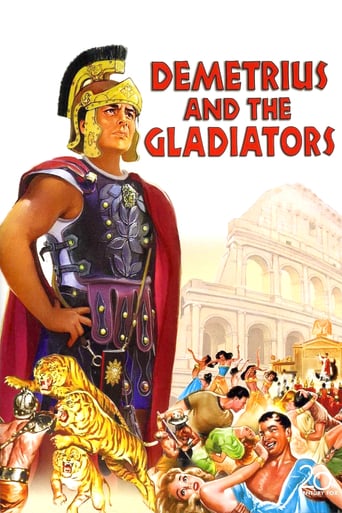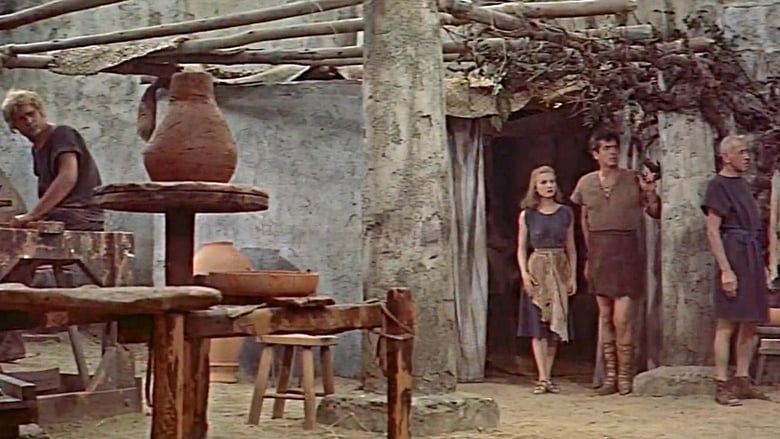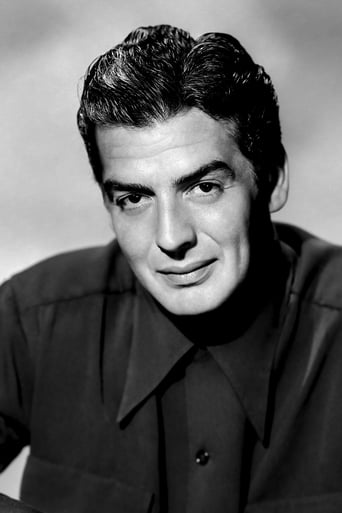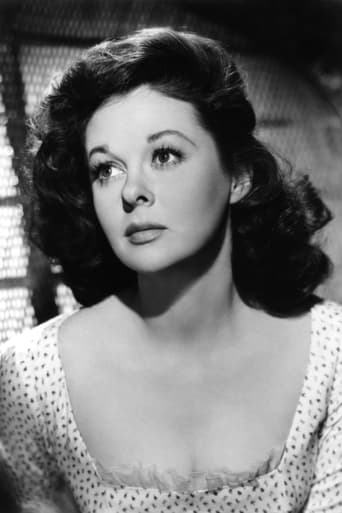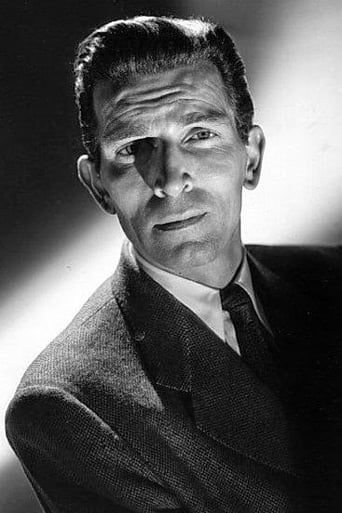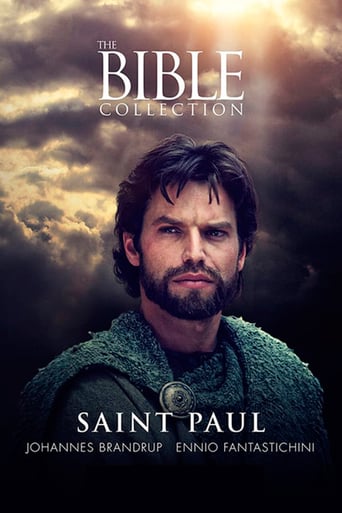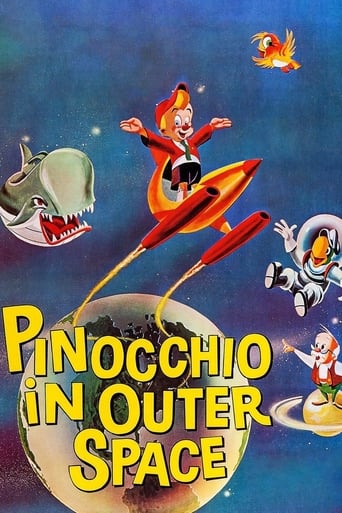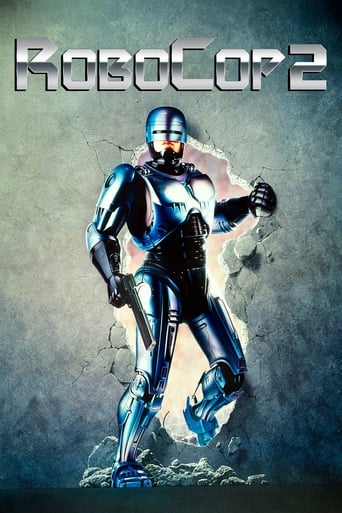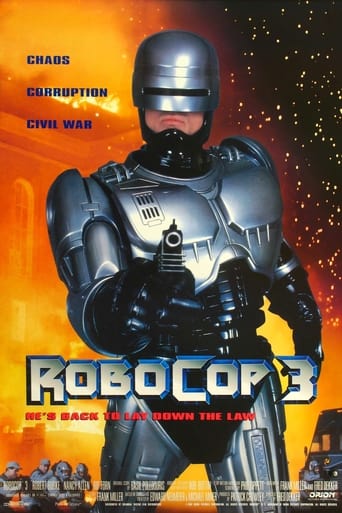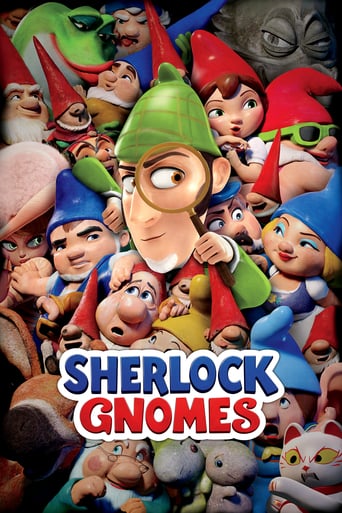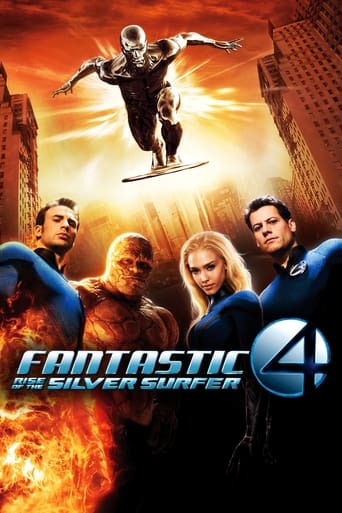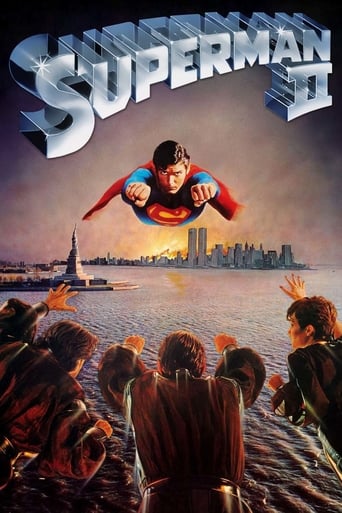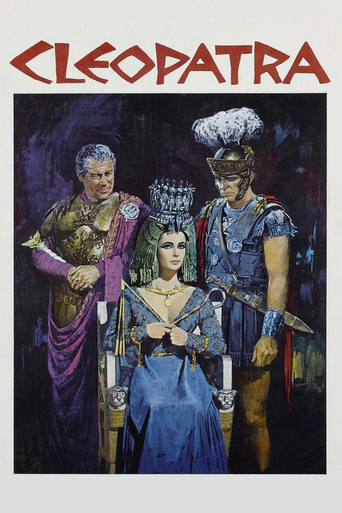Demetrius and the Gladiators (1954)
The story picks up at the point where "The Robe" ends, following the martyrdom of Diana and Marcellus. Christ's robe is conveyed to Peter for safe-keeping, but the emperor Caligula wants it back to benefit from its powers. Marcellus' former slave Demetrius seeks to prevent this, and catches the eye of Messalina, wife to Caligula's uncle Claudius. Messalina tempts Demetrius, he winds up fighting in the arena, and wavers in his faith.
Watch Trailer
Cast


Similar titles
Reviews
The ending of "The Robe" shows the triumphant deaths of two proud Romans choosing Christianity over the insane rantings of Jay Robinson's Emperor Caligula. On the run, Demetrius (Victor Mature) is captured, sentenced to die in the gladiator ring, and ends up becoming a hero but gives up his Christianity. Ending up in the compound of the seductive future empress Messalina (Susan Hayward), he rejects the doctrines of Jesus and becomes a pagan once again. How will he regain his faith? How will Messalina explain the fact that she's a 20 something in a 30 something year old body? How will notorious stammerer Claudius explain his lack of a stutter? And will somebody tell me how Jay Robinson got into the sequel to "The Robe" and overact three times as much? I half expected his face to melt a la "Indiana Jones" when he got his hands on Jesus's robe.Not just for people who like movies about gladiators, this is for those who like their moving filled with camp. It is just as lavish as the original, but something has happened and it's transfer from script to screen and the results are laughable. Not only has history been altered to satisfy Hollywood's whim, but the spirituality that made the first film so special is absent as well. This was rushed together too fast and ends up seeming like a spoof, closer to Monty Python than "The Robe's" author Lloyd Douglas.A campy dance sequence features Julie Newmar. The supporting cast includes Ernest Borgnine as Messalina's guard, Richard Egan as a brutal gladiator, and Anne Bancroft and Debra Paget as two of the decent women in Mature's life. At least this wasn't called "The Robe II", because it really seems as pointless and messy as many of the sequels made today. For real Roman history, stick with history books and the BBC mini-series, "I Claudius".
Demetrius And The Gladiators (1954): Starring Victor Mature, Jay Robinson, Susan Hayward, Michael Rennie, Anne Bancroft, Debra Paget, Barry Jones, William Marshall, Charles Evans, Ernest Borgnine, Richard Egan, John Cliff, Karl Davis, Carmen De Lavallade, George Eldredge, Lyle Fox, Ed Fury, Everett Glass, Fred Graham, Frank Hagney, Selmer Jackson, Russell Johnson, Kenner G. Kemp, David Leonard, Dayton Lummis, Mickey Simpson, Ray Spiker, Paul Stader, Gisele Verlaine, Jim Wikler, Jeff York...Director Delmer Daves, Screenplay Phillip Dunne."Demetrius and the Gladiators", released in 1954, was the sequel to "The Robe" ('53) this time by a different director, Delmer Daves. The Robe, said to have been the first film in Cinemascope, was a triumph at the box office in '53 and was a superb religious drama, bu this film pales in comparison. The sense of spirituality and high drama is lost to a sensational epic about ancient Rome and its wicked characters who oppress the good Christians. Victor Mature is back as Demetrius, the Greek slave who converted his master Marcellus a Roman senator, to Christianity. The Emperor Caligula (Jay Robinson) put Marcellus and his love Diana to death. Demetrius escapes the clutches of Caligula, taking the Robe with him, to hide somewhere in the vast city of Rome. But Caligula desires ownership of the Robe to help him acquire divine powers. Yes, this is pure fiction and far removed from historical truth about ancient Rome during the early days of Christianity, but it was the sort of adventure and dramatic story that audiences in the 50's enjoyed watching. Susan Hayward was still a big star but she abandons her usual repertoire to play the role of a Roman priestess/noblewoman Messalina, who falls for Demetrius. There's no hint of smoldering temptress in her acting, though she is clearly costumed to attract male audiences. A young Anne Bancroft, not yet a big star, portrays Paula, another Roman noblewoman. Jay Robinson as Caligula hams it up and appears to act more like a comic book supervillain, complete with an annoying voice. The film is marked with a degree of sensationalism- mostly of the darker kind (attempted rape, torture, Gladiator fighting, religious persecution) but it's not overly violent and in fact tame by today's standards. This film was, however, lacking in the strong religious theme of hope and faith that The Robe had. The Robe, too, benefited from a great script and better acting. This film is lackluster and predictable and I really think there was no reason for making a sequel to an already successful film. So I can only give it a 7. But if you like Victor Mature, Susan Hayward and Anne Bancroft, then this film is for you, as well as being a film of interest to old Hollywood epic films.
A sequel to the box office successful "The Robe", this film is just one more of those spectacular epic films of the 50's and early 60's settled in ancient Rome and with a religious background of the early Christians and their whereabouts in an all pagan world.After a secondary lead in "The Robe", Victor Mature (as the freed Christian slave Demetrius) takes here the centre of the stage and the film deals with his story; the man looses his faith and recovers it after fighting as a gladiator in the arena, becoming a Decurion for Emperor Caligula and having a passionate affair with the woman (Messalina) married to the weak emperor's uncle Claudius (Barry Jones). The film is most colourful, the script is not bad as well as the costumes and armors, the settings and reproduction of the old Rome are good enough (no computers back in 1954) and some action sequences in the arena are well achieved. But somehow this picture lacks the sort of sensation of greatness and huge spectacle other products of the genre transmitted ("The Robe" itself, the previous "Quo Vadis?" or the posterior "Ben Hur" and "Spartacus"); in fact, "Demetrius and the Gladiators" is not one of the titles that comes to mind easily when epic spectacular films is the subject.Victor Mature shows his inevitable overacting as the main character though it is fair to say he has done worse ("The Egyptian" and "Samson and Delilah", for instance, and many others). Susan Hayward also overacts every now and then as the wicked Messalina but she was a fine actress and rounds up a better job. Jay Robinson clearly overacts and very much as Calìgula (Caius Germanicus was his real name) but in his case it appears to be a conscious performing decision after he was the most remembered character in the previous "The Robe"; he just lets himself go without limits. It is hard to swallow Michael Rennie (Peter) as a rude uneducated fisherman not for his acting but for his important and polite looks. There are good performances by Ernest Borgnine, Richard Egan (as a villainous gladiator), Barry Jones, Anne Bancroft and William Marshall (far before his "Blacula" days). Debra Paget delivers her acceptable acting but she looks as a contemporary girl here (she could have used the same hairdo and make up for her real life in the middle 50's).All in all, "Demetrius and the Gladiators" is a watchable and entertaining product, but no much more than that in my opinion. A 6 (out of 10) for me.
The historical epics which were so popular in the fifties and early sixties frequently had a religious theme. Some were based on stories taken directly from the Bible ("The Ten Commandments", "Solomon and Sheba", "King of Kings"), while others tried to convey a Christian message indirectly. Thus the central character of "Spartacus" is treated as a metaphorical Christ-figure, and "The Egyptian" draws parallels between Christianity and the monotheistic religion of Atenism which briefly flourished under the heretical Pharaoh Akhnaten. "Demetrius and the Gladiators" is one of a number of films (the most famous is "Ben Hur", but others include "The Robe", to which "Demetrius" is a sequel, "Quo Vadis" and "The Fall of the Roman Empire") which deal with the early days of the Christian church and its persecution by the Roman emperors. The stories told by such films were normally fictitious, but were set against a background of historical fact. The central character, Demetrius, is a former slave who, after assaulting a soldier who is molesting his girlfriend Lucia, is sentenced to fight in the arena as a gladiator. This causes him difficulties as he is a Christian whose moral code will not permit him to kill another man, even in self-defence. He survives, however, largely because he attracts the attention of Messalina, the wife of Claudius, uncle of the Emperor Caligula. Later, believing that Lucia has accidentally been killed by another gladiator, Demetrius renounces his Christian faith, and fights fiercely, killing the man he believes to have been responsible for her death and several others. His courage and skill with a sword lead to his being made a tribune in the Praetorian Guard, and he becomes Messalina's lover. As in "The Robe", the robe which Christ wore to His crucifixion plays an important part in the film; Caligula wants to get his hands on it because he believes that it has magical powers and that it will give him the secret of eternal life. Several of the epics of this period combined, incongruously, an improving religious message with a good deal of eroticism, with much bare female flesh on display- examples include "Solomon and Sheba", "Esther and the King" and "Salome", where we get to see the famous dance of the seven veils, but it is made clear that, contrary to the Biblical version of the story, Rita Hayworth's character is in fact a virtuous heroine who only is flashing her legs in public in a desperate attempt to save John the Baptist from his fate. There are elements of this strange combination of godliness and sexiness in "Demetrius", but the sexiness is very much downplayed. Messalina's notorious promiscuity is alluded to rather than shown on screen, and the scene between the gladiators and the women brought in to entertain them may be an orgy, but it is a very decorous one. The film-makers were clearly more interested in the element of godliness, and, unlike some films of this type, "Demetrius" raises genuine moral issues about pacifism, non-violence and Christian forgiveness. Demetrius himself is a man who goes through a crisis of faith and abandons his Christian beliefs in favour of an ethic based on revenge and worldly ambition. His conscience, however, is troubled, especially after he is reproached by his old friend St Peter. He is a more complex and interesting figure than many epic heroes, so it is unfortunate that the part was played by Victor Mature, an actor whose success often seemed to owe more to his ruggedly masculine good looks and his virile physique than to his acting technique. Susan Hayward (an actress who could often look bored and listless when asked to play roles that did not interest her) makes a weak Messalina. Neither give their worst performance (in Hayward's case that must surely have been "The Conqueror"), and Mature brings a certain rough sincerity to his part, but I felt that the film might have been improved with other actors in these roles.Nevertheless, there was much I enjoyed about the film. Michael Rennie was appropriately dignified as Peter, played as a sort of ascetic philosopher, although I would agree with the reviewer who pointed out that it would be hard to imagine him ever working as a fisherman. I also liked William Marshall as Glycon, the former African king now forced to fight as a gladiator, who befriends Demetrius. ("Spartacus", a better film than "Demetrius" although it owes something to it, also features a sympathetic black gladiator who befriends the hero). Jay Robinson, who played Caligula, has been criticised by some reviewers for overacting, although I must say I liked his performance. Historians have doubted whether the real Caligula was actually insane, although he was undoubtedly cruel and eccentric, but in the context of this film he is definitely presented as a lunatic, a man who has literally been driven mad by power to the point where he believes himself to be a god. (Not even Hitler went that far). There is an interesting contrast with a modern epic, "Gladiator", in which Joaquin Phoenix plays another tyrannical Roman Emperor, Commodus, as a basically weak and insecure young man. Although Phoenix's performance works well in the context of that particular film, the way the role of Caligula was written called for something quite different- the sort of ranting, over-the-top performance which might be unfashionable now but would have been less controversial in the fifties.Although the standard of the acting is mixed, I generally enjoyed the film. It does not reach the standard of the really great epics, such as "Spartacus" or "Ben-Hur", but it works well on the level of spectacle, with fine sets and costumes and some exciting scenes of gladiatorial combat, and has a more intelligent script than many epics. 7/10

